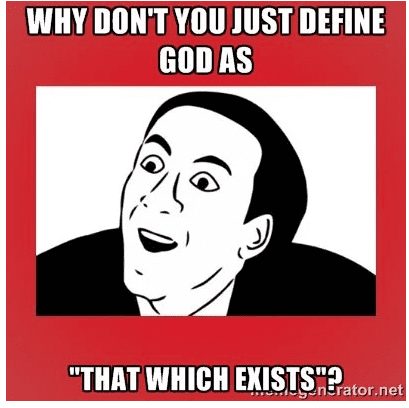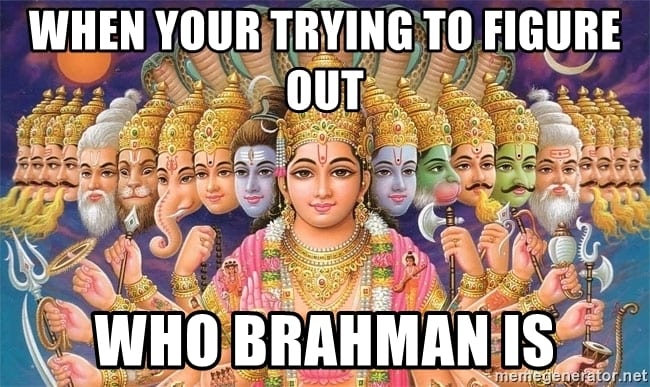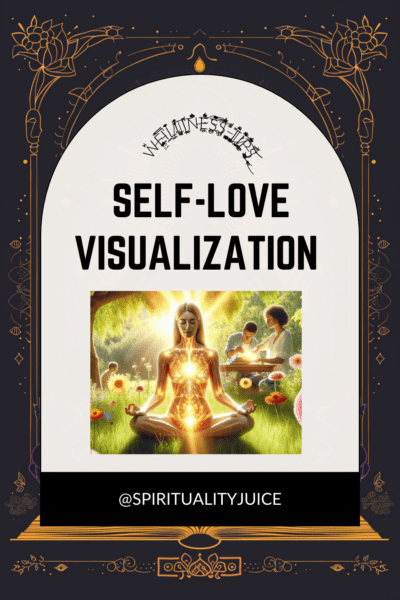What is God anyway? We have a real problem on our hands about defining the divine. Definitively pinpointing what god is, is a difficult quest to undertake. There are so many different answers.
Although there are many different creeds they all ultimately universally define God in one manner. God is omnipresent, omnipotent, and omniscient. AKA. God is all being, all-powerful, and all-knowing.
Why an Adequate Definition of “What God is” is Important
Religions create caricatures of the divine. This is problematic because interfaith groups need to reach a concrete conclusion about God in order to form a coherent definition of what God is. In order to make a scientific inquiry we all need to be able to correspond on the thing in question. In this sense, God’s existence is a separate issue entirely.
When all of these different dogmas can’t decide, then there is no agreement. So then the question we have to ask ourselves about interfaith groups is, are they really debating the same thing? Differences in the agreement of God are often difficult because there is no solid basis for tying these concepts together. Is God experience? Is God nature? Are we going to derive our concept of God from religion or from philosophers?
Forming an Adequate Description
I would say that the best way to describe What is God, is: “It’s complicated.” I mean how do you describe the awesome? How do you fathom that to which all realities are purported to emanate from & all universes form and contract? Is God closer to the spirit or closer to nature or both?
This would mean that God is definitely non-corporeal & not localized, but everywhere. So in answering the question “What is God” is an inquiry best left outside of nature and time-space. That would make God the ultimate reality. Somehow God can remain one while creating distinct individual characteristics in all beings. Religious people are not using the same word in properly defining this thing we call “God”. Yet in order to talk about it, all attempts at rational theology will fall by the wayside. Without it, there is no conceptual framework.
Most definitions of people agreeing to God are based on logical mistakes and confusion. Religious truths should be taken allegorically. To take them literally is a sort of fundamentalism. In this way, we can use it as a medium of investigation. Most disagreement about God comes from inadequate agreement about understanding what god is.
“Not how the world is, but that it is, is the mystery.” ― Ludwig Wittgenstein
What is God & How is God defined by Religions?
Faith is pure dogma. Certainly, the theological abilities of religion are limited. Truthfully though they are really bent on self-serving a set of traditions. So as a result of this, sub-cultures collectively form. Groupthink becomes the central passion and each religion thus fosters its own tight-knit little community. Naturally the enforced dogma becomes a quality control to keep the purity of these communities together. However, defining what god, in this sense, becomes a real problem.
Religious Directives that hinder answering “What is God?”
Like I just described, inevitably a series of serious derelictions fall in the way of religion being able to truly form an adequate definition of the almighty.
- Religion Needs to uphold dogmatism: It can’t acknowledge commonality with other religions. Ultimately, if it did, it could ultimately reach an adequate diversified understanding of divinity.
- Religious absolutism: Religion legitimizes its claim on defining God. According to a given religion, all other religions are false.
- A man comes to God through dogma: humans have a given ability to understand the divine. However, they only know the “one true god” through the dogma. Humans have an innate longing for God. Religion obscures that truth with dogma.
- Sacred visions of the cosmos: literal definitions of God overcompensate for the lack of substance. The revelation trumps experience.
Individual faiths only point to God. They are vehicles that can take you to God. The inflexible dogma within religion, however, makes it difficult to adequately develop an interfaith definition. This is what leads the different religious groups to all-out God squabbling.
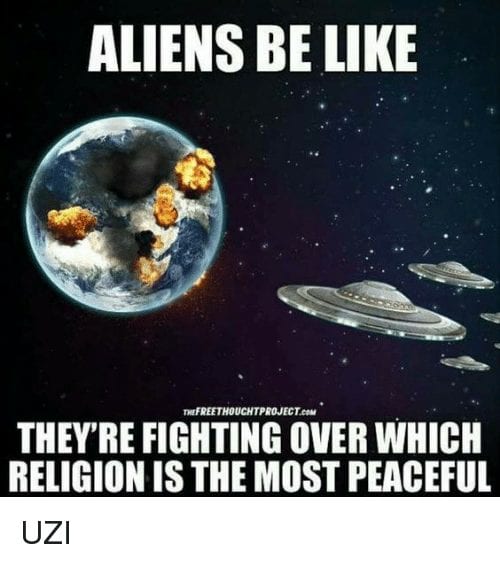
God vs god: How to use and distinguish the usages of these words in defining what God is
God is the source of all things. Ultimate being and transcendent God are synonymous with what God is. Eternal, omniscient, uncreated, and omnipresent. God can’t be thought of as anything lesser. Everything gains it’s being from God. Like the ocean that is the source of all water on earth. The absolute ultimate reality. Infinite being and infinite consciousness. It is beyond comprehension and everything is insufficient. Yet it can be known, in some way.
God & the word: Divine Logos
“the Tao that can be spoken, is not the eternal Tao.”
-Lao Tsu
God is a bad word. I mainly mean that it is not a sufficient word to encompass the difficulty of this all-encompassing concept of reality.
Big God vs Little god
God= Theologians write this God with a capital “G”. This is because it is the One God aka ho theos.
god=Then there is a god with a lower “g” This is more to refer to lesser gods for example a god in a pantheon. This is more of a localized god. Something that comes in and mediates the natural world from another dimension. It belongs to nature and has a definite origin story.
This brings us to the next section.
Monotheism vs polytheism
Monotheism refers triumphantly to the Godhead from which being flows to the smaller beings. Here, in this example, God is unequivocally the unified infinite reality that grounds all finite realities together. Take for example the different concepts of Brahman and Devas in Hinduism.
In Hinduism, Brahman is the ultimate reality that underlies all phenomena. It is wholly primordial and instills all things with their worldly essence and existence. A Deva, on the other hand, is a lesser deity with a lower case “g.”
“Only one God is uncreated (Brahman). Devas are much closer to man than God.”
Swami Paramandanda
Hellenistic Jews and Christians recognized these different Gods. Christianity had a bunch of different divine beings as well however. They all entered into this angellic order.
Click here: take the Guardian Angel Quiz
The Demiurge: A Lesser god

As a result of these Religious Directives most of the world’s religions, at best, theologically describe god as what theologians would call a demiurge.
The Demiurge does not fit the necessary criteria for an omnipotent, omnipresent, and omniscient entity. It is not the highest form of being although it is certainly a highly developed entity. Like God, the father, it fashioned the world from the void, yet it didn’t create the void itself.
Instead of being an “ultimate reality” the demiurge is slightly less than almighty. The best example of a demiurge would be Zeus. Though Zeus is the king of the Gods he is entirely subject to the cosmic law. Zeus, along with the rest of the gods in the Greek pantheon display affectations of powerful creation. However, their being is not non-dual with the entirety of cosmogenesis making divinity questionable at best. The Hindu equivalent would be the Devas.
A Demiurge is a being that is in the world and of the world and subject to its rules and regulations. A sub- deity. This is because it’s being is still necessitated by an even higher reality. Though a demiurge can act, however, as a mediator between higher and lower realities. Yet it is only an object among other objects. Which is why many of these gods have so many flaws and act so human sometimes. But we aren’t here to talk about sub-gods. We are here to talk about the almighty supreme Pooba.
Divine Transcendence to Determine What is God
Plato’s concept of forms is very important in explaining God. It is essential in nature. Essentialism is the ultimate reality veiled behind our known reality. Undoubtedly the concept of universal metaphysics offers a world independent of experience. It’s a conceptual framework whereby the concepts underlying the experiences we have are imminent. They never change. Therefore reason & revelation are two sides of the same coin.
“interior intimo meo et superior summo meo”
“higher than my highest and more inward than my innermost self”
Understand more Essentialism by Checking out this Post>Platos essentialism in Rick and Morty
Science vs. Religious views of God
Science has become the dominant worldview for the western secular world. Indeed, the post-enlightenment placed weight of reason above all else. All of society emerged from its religious torpor. The Dark ages had to be put to rest as mankind embraced the power opened up with the Scientific Method. Ultimately when Religion tries to follow in the footsteps of
Religion brands its own Science
Traditional religious beliefs were subordinated to science and they knew it. Primitive faith couldn’t outcompete the massive world-building power of science. Science could do actual black magic, it could make predictions and have revelations that could be verified as actual facts. Amazingly people were fond of verifiable facts and not religious edicts torturing them into submission. So inevitably, as a result, the cultural emergence of a Scientific directive became the dominant world view.
Religion got proverbially butt hurt. As a result of this religion thought it could become a science. Out of this, we got things like creationism and the literal interpretation of the bible. This actually made religion less effective. Essential proverbs and parables that were meant to be personalized were then treated almost scientifically. Allegorical traditions were replaced with pseudo-scientific fraud.
Religious revelation comes from within!!
Religious texts should be treated as figurative enigmas. Read allegorically they instead explore mythological telling about the world. When these books need to be taken literally they are spiritually sick. People begin to think that their faith can only be legitimized by the literacy of their religious dogma. This is because Scientific inquiry is wholly problematic to the definition of what God is. A transcendent force can only be understood as a logical conclusion from first principles rather than some mechanism in the natural world.
Why Science is a bad method to define God
Science assumes everything that cannot be proven by science is nonsensical. Therefore Metaphysical speculation is ridiculed. Naturalism is ignorant in that regard. This is because it places the scientific method above all inquiry. It assumes, undoubtedly, that the scientific method is the ultimate tool to reach conclusions about the nature of reality.
Science uses inductive meaning to try to reduce reality to its simplest concepts. Primarily, the assumption is that physics can explain everything. Everything physics cannot explain can’t exist.
Marquee de Laplace was a mathematical physicist. In this famous story, he presented his work on the solar system to Napoleon Bonaparte. Napoleon, a bit puzzled, asked Laplace where God fit into his model of the Solar System. At this Laplace blatantly and famously said “I have no need for that hypothesis.”
The Scientific Method is not Equipped to Answer: What is God?
Do physical things tell us anything about their meaning? There is a number of things that science cannot prove but that we all rationally accept.
- Logical and Mathematical proofs: Science assumes logic and mathematical proofs but trying to prove them by scientific observation is irrational.
- Metaphysical Truths: The idea that there are other minds than my own cannot be proven by science. Yet Scientific positivism relies whole heartedly on the idea of correspondence.
- Ethical Beliefs: Statements of value are not accessible by the scientific method. You cannot show, via the scientific method, whether the Holocaust was evil or not.
- Aesthetics: The question of what it means to be beautiful is something that is wholly out of the ability for science to determine. Aesthetics is a subjective experience. To try proving beauty by science is just irrational. Because each person has his/her own predictor of what beauty is.
- Science: Science itself cannot be justified by the scientific method.
Naturalism in-itself suggests a God
A principle originating in classical Greek thought which refers to a universal divine reason, immanent in nature, yet transcending all oppositions and imperfections in the cosmos and humanity. God is the eternal and unchanging truth present from the time of creation, available to every individual who seeks it. In this way God is the logical conclusion that we draw from the existing nature of reality.
Naturalism: God in the machine
Nothing apart from a physical “closed system” materialism, cannot conclusively determine nature as a self-initiating system. How do you draw empirical conclusions about such metaphysical concepts? Naturalism presumes its own beginning. However, nature only produces the necessary evolutionary traits for survival and not the conditions of its own existence.
However, there is a basic problem here that you can see. When rationalizing through materialism, abstract truths become paradoxical. They underline the fabric of our concepts yet can’t be ascertained without natural empiricism. In this line of reasoning, the transcendent authority of rationalism in metaphysics is a kind of absurdity. Science requires rationalism but using the scientific method to prove rationalism is absurd.
God relates to the human phenomenological experience to reality. Those are the pictures that we have in the world. Science really can not go beyond them. The very theoretic and metaphysical goals of scientific inquiry: Mathematics, theorist, metaphysics, geometry, axioms imply the absurd. To clarify: that all things in the known universe can be explained by science.
Science needs faith. You rest your faith on the report.
So what is science good at?
Science is good at developing a picture of the cosmos as a deterministic machine. That’s it. Newtonian physics cannot explain quantum physics and vice versa. Instead of relying on arguments to construct reality, they rely on the experience itself. Consciousness is the one thing science relies on. Yet it presupposes consciousness without any real grounds to assume its objective existence. Reality is infused with consciousness and thus the universe.
Why is God beyond Reality?
God is not contingent. So what is Contingency? Contingency is basically just the natural world. It is mutable. That means it is always changing. It is also extended in space and time coming in and out of being. God cannot be thought of as contingent. It is, by definition, the thing that has no cause. The First cause.
God as the source of contingent reality cannot be thought of as a being among other beings. If you meet a person in the street. You can immediately infer they have a grandfather. We arrive at God simply by following this line of reasoning all the way back to the inception of the Universe.
“God cannot be found amongst the beings because he is the being of all realms.”
-Mulla Sadra
To think about God is to reduce it down to the level of the finite. Making him distinct among other objects or merging him into all things aka Pantheism.
With God nothing can be added and nothing can be subtracted. Reality is represented in all things.
Reality is present in all things.
Si Comprehendes Non est Deus
“if you understand it, it is not God.”
-Augustine
Via Negativa
The via negativa is a way to attribute divine qualities through referencing its negative. Through the Negative Theology (Understand God in the Negative) we define what God by what it isn’t.
There is a book written We know there is a God because there is no God
Theologia Mystica
We reach notions of the infinite by reversing our conditions of the finite. Inversion. God is the reality that is metaphysically indestructible. He is a logical necessity.
Ontological Argument
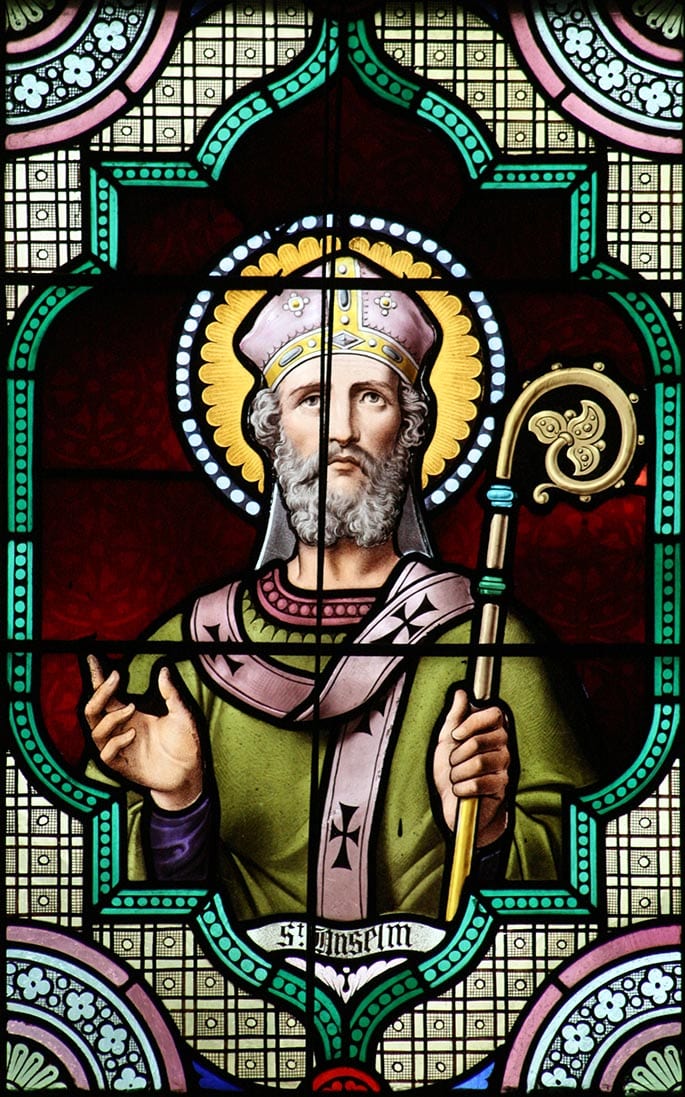
The Ontological argument is one such way of giving a glimpse at the nature of God. It defines God as a maximally great being to which no greater being can be thought of. In this way, God is like a glass ceiling of being. Therefore if something were greater than “god” than that thing would actually be God. This is why this is the ontological argument. It’s grounded itself in nature and being of God.
Ontology = the study of the nature of being and existence.
St Anselm’s argument comes with a few caveats. We can’t just go about proclaiming willy nilly that something is God. There is a very fine line we are to tread in step with determining this thing. Firstly this maximally great being must be all-powerful, all-knowing, and morally perfect in every possibility of its existence.
If it is possible that God exists than it follows logically that God does exist. We can’t reduce this definition of What God is to any sort of logical incoherence. The definition of God must be sound. Not like a Married Bachelor. A married bachelor cannot exist in any possible world because a married bachelor is logically incoherent.
Likewise, this being in question cannot be substituted for some other object. For instance, we cannot say that there exists a maximally great pizza. First and foremost a pizza by its nature must be eaten. If a pizza can be eaten than by its nature it
St. Anselm’s God is “That which it is impossible to think anything greater.”
- It is possible that a Maximally Great Being exists.
- A Maximally Great Being exists in some possible world.
- If a Maximally Great Being exists in some possible world, then it exists in every possible world.
- If a Maximally Great Being exists in every possible world, then it exists in the actual world.
- A Maximally Great Being exists in the actual world.
- Therefore, a Maximally Great Being exists.
The Idea of God is coherent. Just the mere idea that it is a possibility
Cosmological Argument
1)Whatever begins to exist has a cause.
2)The universe began to exist.
3)Therefore the universe has a cause
This is called a syllogism. It is a method for drawing logical conclusions about reality. The first two sentences are the premises and the third is the ultimate conclusion.
Naturally, if the premises are true it must follow that the conclusion is true. Scientific evidence confirms the first premise. Nothing can come into existence without a cause. Yet we have to ask the question, did the universe have a beginning?
1st law of thermodynamics: Processes taking place in a closed system always tend towards a state of equilibrium. The universe, we know, is running out of energy.
2nd law of Thermodynamics: Albert Einstein presents the theory of relativity. It gives a glimpse of the history of the universe. The redshift suggests that the universe is expanding and that we can see it sprang into being from a finite point in the past.
This means that since the universe which has been expanding throughout its history it cannot be eternal but must have an absolute beginning. Therefore anything which has a beginning cannot be the sort of its own creation. Instead, it has to have a cause beyond the space-time universe. From something that is spaceless, timeless, uncaused, and unimaginably powerful.
What if there was no first Cause?
The philosopher David Hume likes to think that despite the Cosmological argument, there simply is no beginning to the Universe whatsoever. Indeed it’s easy to just say “What if there is no first cause?” & write it all off entirely. Perhaps the entire universe, time-space, and the multiverse are simply infinite. That is, they go on forever and ever. There is a problem with this though.
This kind of reasoning creates an infinite regression which is absurd. I’ll give you an example.
A gifted professor of theology was giving a speech on the big bang and the beginning of the universe. At the end of the speech, when it was time to take questions, an old woman chimed in.
“What you have told us is a load of crap. The world is really a flat plate supported on the back of a giant tortoise.”
Just then the professor thought he’d gotten her.
“Well then, what is the tortoise standing on?” He asked.
“You think you’re very clever” The woman replied, “But it’s turtles all the way down!”
It is non-sensical to think that infinity can simply fall back onto itself. The Universe can’t be a series of tortoises standing on subsequent tortoises. There has to be a ground to which they are standing. That is the hypothetical beginning of the universe.
A rose is a rose is a rose.
Why is there something rather than nothing?
There is only one way there might be nothing, but an infinite amount of ways that there can be something. Here we have the study of Anthropics. Anthropics comes from the anthropic principle. Essentially the anthropic principle is the philosophical idea that any set of data that we have about the cosmos is first and foremost filtered out by the fact that, for it to even be observable, the cosmos must primarily be compatible with the emergence of conscious and sapient life that observes it in the first place. Essentially we are the universe that has become aware of itself.
God through Experience
Relationship between soul & body
- Cartesian: liked to disparate substances ghost/machine
- Platonism: pure intellect presiding over an automaton of the body. The soul surfs on body life. Matter is just a mirror of the universal forms.
- Aristotle: Soul is the form of the body. All energies of life are pulled together into a given unity.
- Stoicism: Logos is the rational living integrity of the body. It is a particular instance of the universal logos that shape the cosmos.
- Hellenism: Christianity and Judaism: Soul is imminent intelleci of corporeal life. Encompassing every part of human existence.
- Upanishads: There are levels of the mind.
Elements of the Experience of God
Life is a bunch of differentiating experiences. These are called qualia and refer to individual sensations of existence that stem from experience. This is because only qualitative properties are really real. Your experience of (this thing) is a subjective fact about you and not (this thing). Electrophysiology of the brain is causal anyway.
Evolutionary naturalism of qualia. Objective Properties of a physiologically integrated system of operations with distinct functions
God should be thought of as the prime substance of the human experience. The subjective experience is Brahma. There is an ancient Sanksrit word for this called Satcitananda. Satcitananda is a combination of three separate words.
Sat–Existence
Chit–Consciousness
Ananda– Bliss
Satchitananda is the ultimate nature of experience. It is a realm of infinite sublime blissfulness. Experience is pure consciousness in both a single drop of the eternity and ultimate reality of Brahman. The ecstatic ecstasy of consciousness reflects the world in joy.
“all that we are is posesed in a higher , purer, limitlessness.”
Where does God come from?
It’s easy to think that God is just the whole of the Universe. However, this is too simplistic for such an imminent being. This is because it makes God some sort of macro composition that is inevitably just no more than the sum of its parts. Metaphysical forces are at play here. There is a totality to the universe, yes, but there is a vast and unimaginable mystery to the universe that Human experience simply is not equipped to comprehend. It’s ultimately foolish to think that the human brain can account for the sheer complexity of all reality.
Eternal reality is forming from the rational structure of the universe that comes from the human mind. Yet at the same time, the mind of God is the prime mover the primordial all. Pythagoras explained that the natural world is somehow generating from these impermeable metaphysical axioms. A type of world-building through modal logic. In this way God’s physical necessity is deduced from his metaphysical necessity. The mind consecrates naturalism based on transcendental concrete absolutes. Transcendental values are found nowhere within the physical order. Consciousness comes into the presence of truth. Contacting the “ideal” to extract as much knowledge as we can from that experience of the transcendent.
“He is Allah, the One,”
Al-Ahad
